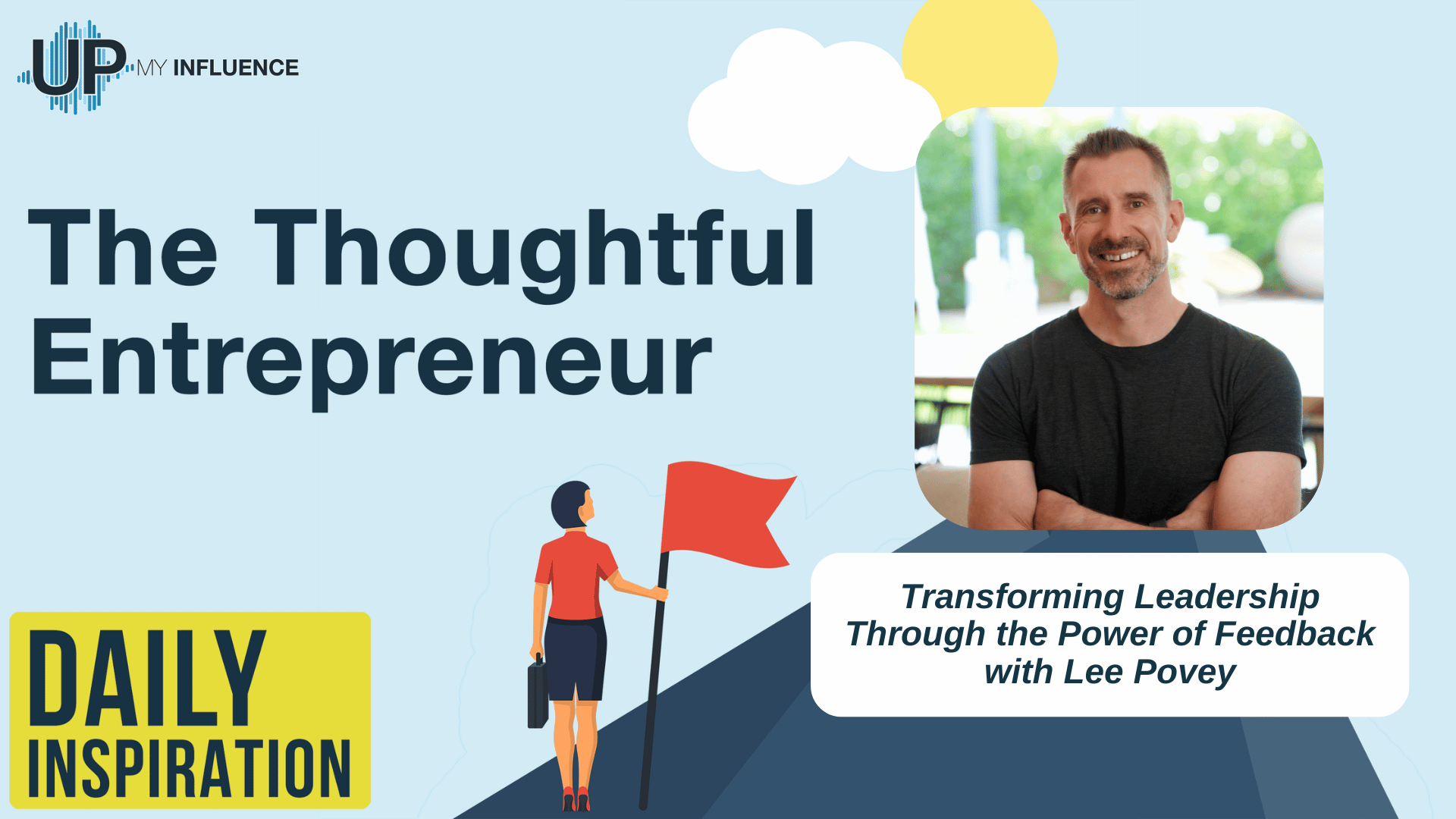THE THOUGHTFUL ENTREPRENEUR PODCAST
 Leadership Insights: Cultivating an Olympic Mindset for Business Success
Leadership Insights: Cultivating an Olympic Mindset for Business Success
In a recent podcast episode, host Josh engages in a compelling conversation with Lee Povey, a high-performance leadership coach who specializes in guiding founders, startups, and teams to develop an “Olympic mindset.” This episode is a treasure trove of insights for anyone looking to enhance their leadership skills and optimize their business performance. Below, we break down the key themes and actionable advice shared by Lee Povey, providing a comprehensive guide for listeners.
Josh kicks off the episode by emphasizing the importance of networking and offers a valuable resource for business growth. He shares that he has had private conversations with over 2,000 leaders to identify the best sources of business growth. To help listeners, Josh provides a free video resource that outlines steps to achieve 100% inbound marketing in their industry over the next 6 to 8 months, without relying on spam, ads, or sales tactics. Listeners are encouraged to visit his website, Up My Influence, to access this content.
Lee Povey is introduced as a high-performance leadership coach with a unique background in athletics. He primarily works with startups experiencing rapid growth, helping them transition from the gritty early stages of business to a more structured and empowered leadership approach. Lee emphasizes the importance of letting go of the need to be the smartest person in the room, allowing team members to flourish and contribute to the company's success.
About Lee Povey:
Lee Povey is a high-performance leadership coach specializing in working with founders and start-ups. As a former elite cycling athlete and Olympic Development Program Coach for USA Cycling, Lee has a deep understanding of what it takes to lead at the highest levels.
Through coaching hundreds of World, National, and Olympic champions, Lee has gained invaluable experience in developing World-Class leadership and people.
He helps leaders and high-achievers understand how best to motivate, lead, give feedback, and empower their teams to incredible growth and performance. He breaks down the human experience in a relatable way, giving tips, skill sets, and valuable mindset insights, allowing us all to perform like Olympians while retaining a strong focus on happiness and longer-term fulfillment.
He also runs men’s groups as a way to give back and help develop better fathers, husbands, friends, and leaders.
About Lee Povey Coaching:
Lee Povey Coaching is dedicated to unlocking the highest potential of visionary leaders, empowering them to excel in creating, inspiring, and making a global impact. With two decades of experience coaching elite Entrepreneurs, World Champions, and Olympians, Lee Povey brings a wealth of expertise to help individuals and teams achieve remarkable success.
Through cutting-edge psychological techniques and personalized coaching—encompassing 1:1 sessions, group coaching, workshops, and mentorship—Lee Povey Coaching supports leaders in building the next billion-dollar enterprise.
Apply to be a Guest on The Thoughtful Entrepreneur: https://go.upmyinfluence.com/podcast-guest
Links Mentioned in this Episode:
Want to learn more? Check out Lee Povey Coaching website at
Check out Lee Povey Coaching on LinkedIn at
https://www.linkedin.com/company/leepoveycoaching/about/
Check out Lee Povey on LinkedIn at
https://www.linkedin.com/in/leepovey/
Don’t forget to subscribe to The Thoughtful Entrepreneur and thank you for listening. Tune in next time!
More from UpMyInfluence:
We are actively booking guests for our The Thoughtful Entrepreneur. Schedule HERE.
Are you a 6-figure consultant? I’ve got high-level intros for you. Learn more here.
What is your #1 Lead Generation BLOCKER? Take my free quiz here.
Want to learn more about all the podcasts managed by UpMyInfluence? Opt in here.

